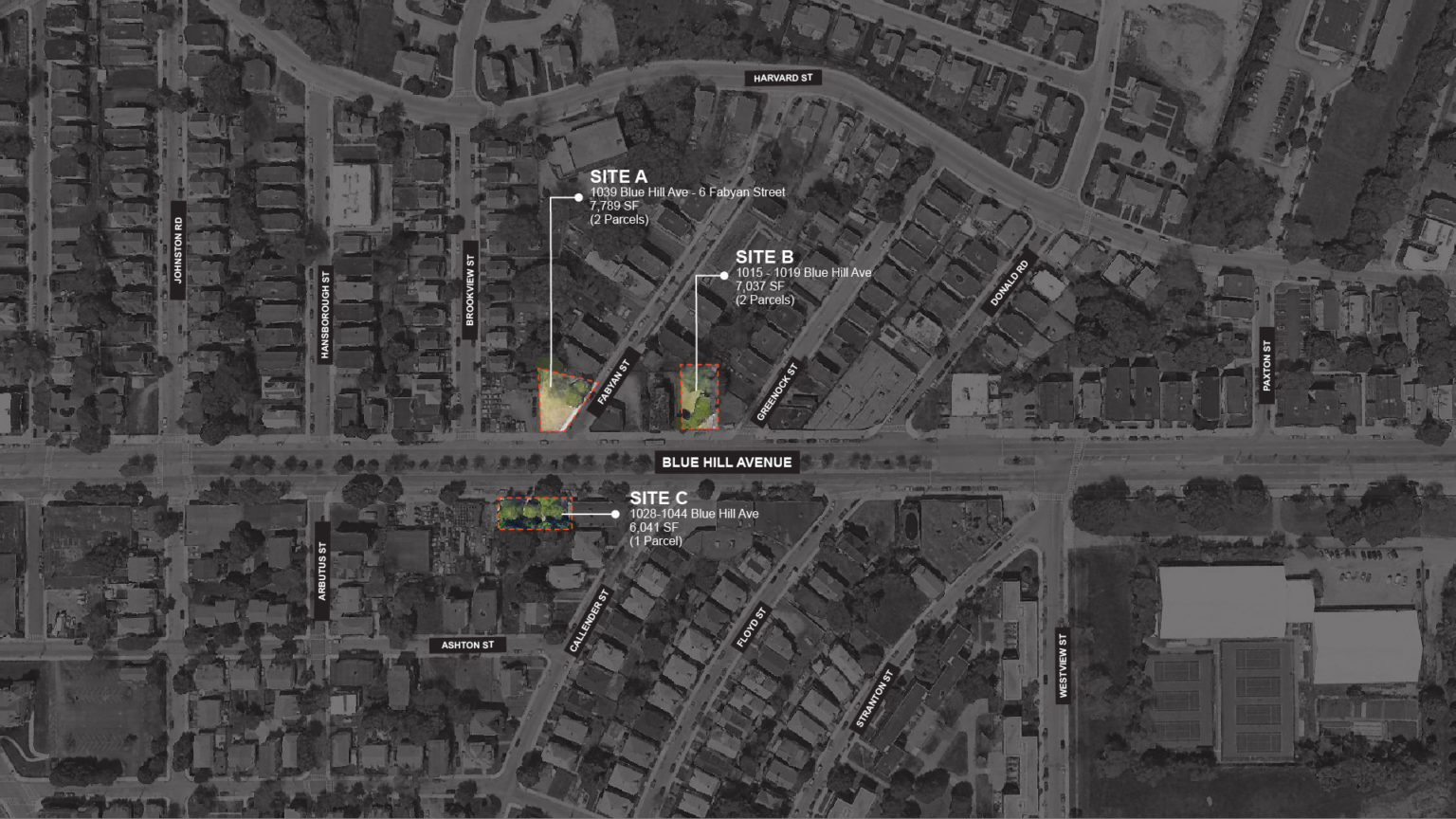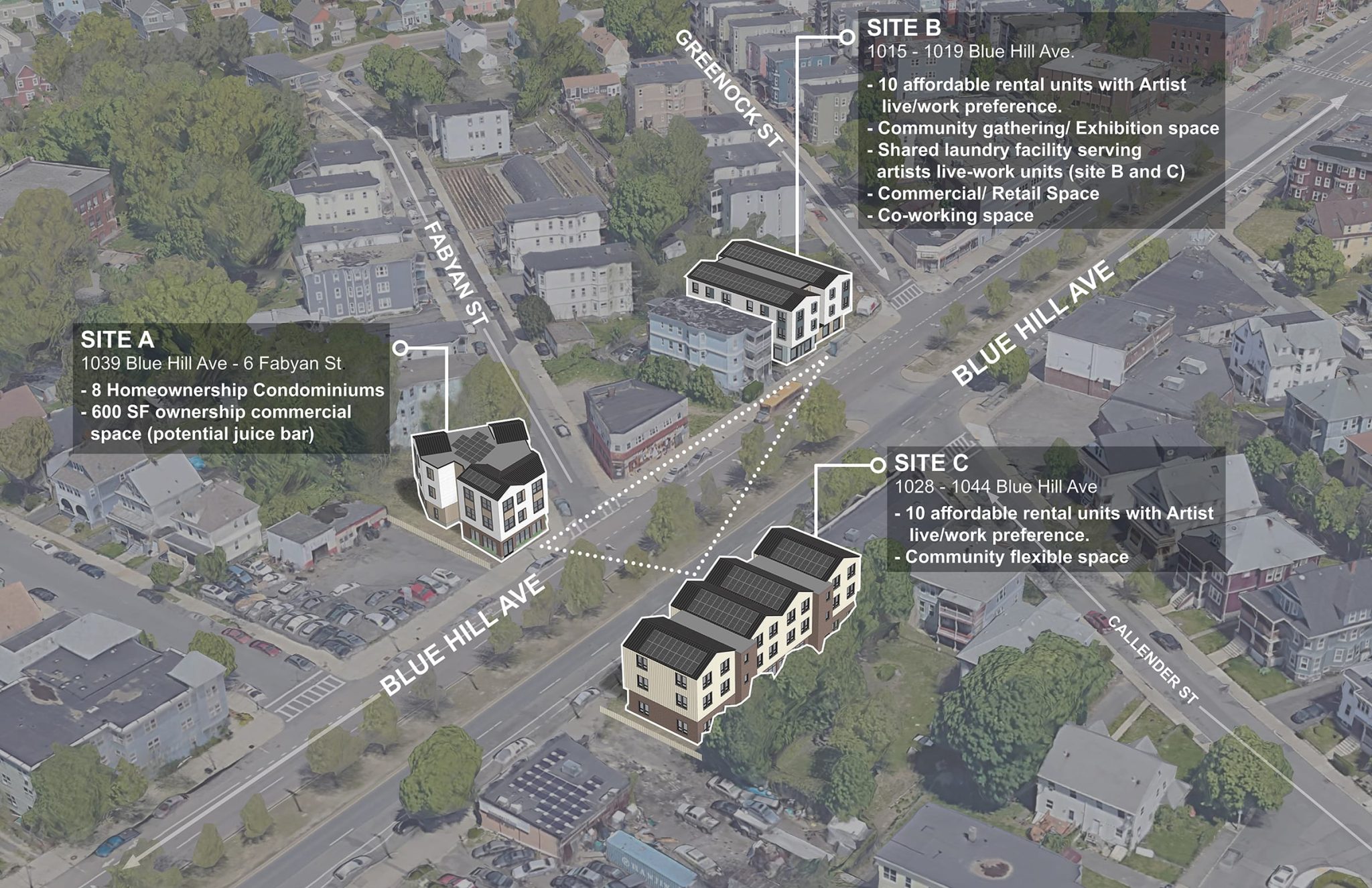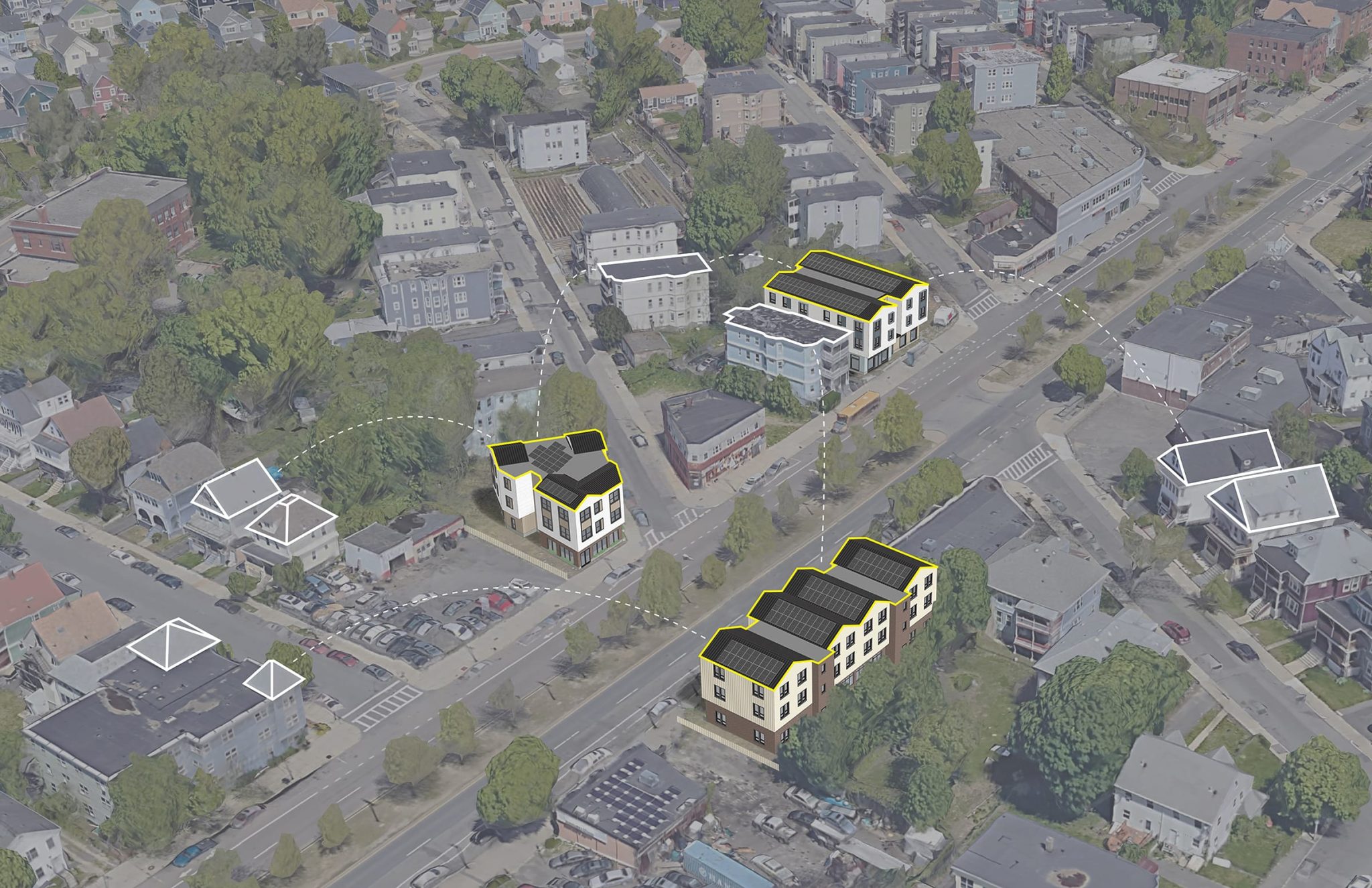By funkhaus
In December of 2021, the Public Facilities Department (PFD) and the Mayor’s Office of Housing designated the eight out of thirty lots, stretching from Franklin Field to Morton Street on Blue Hill Avenue, to development. Blue Hill Avenue is Boston’s central corridor, home of Boston’s Black community and immigrant populations. The lots have been vacant for nearly 40 years – some of them longer – and represent a larger trend of dilapidation of property. The Blue Hill Avenue Action Plan’s major initiative was to attract developers of color who had a community vision to develop and transform the empty parcels of land with community programming in mind to work within the local business establishments and to provide amenities for the residents. The PFD voted unanimously to designate five of the lots to DVM Consulting, which is owned by Mattapan’s Dariela Villon-Maga, and the other three to Habitat for Humanity Greater Boston. While both plans are still in their early stages, they stressed affordable homeownership and the need for affordable commercial spaces for sale in the area. That is where Studio Luz comes into the picture.

The community worked alongside City Councilor Andrea Campbell to ensure the development went to local developers of color in hopes of using existing business and new ventures in tandem with major upcoming transportation projects to revive Blue Hill Avenue’s status as the hub of entertainment and retail it once was – all while supporting the established community and their needs through affordable home ownership. Community input and supporting other minority owned businesses was vital to this project and Developer Dariela Villon-Maga recruited Studio Luz Architects for the project.

With oversight from organizations such as The Greater Mattapan Neighborhood Council and the head of DVM Consulting, Dariela Villon-Maga, who is a native to the area. “I’m excited to be able to do this in my neighborhood,” Dariela said in an article for The Dorchester Reporter. “I’ve been given this opportunity and I want to make sure I give an opportunity in this development to other folks of color. I hope it sets a precedent of how local folks can make a difference in their own community with development.”
The three sites connect homeownership units and artist live/work spaces with shared exhibition spaces, community gathering areas, coworking environments and commercial retail spaces. Exhibition spaces share the work of artists with neighbors and the public while coworking spaces and flexible community spaces provide places to network professionally and foster community. This combination of programs creates an ecosystem which promotes the development of artist residents, vibrant community programs, and viable locations for businesses to serve local residents. This emphasis on bolstering the communities we live and work in is at the heart of our work at Studio Luz, and we are thrilled to be involved in projects like these which allow us to do just that.

No Tags Found